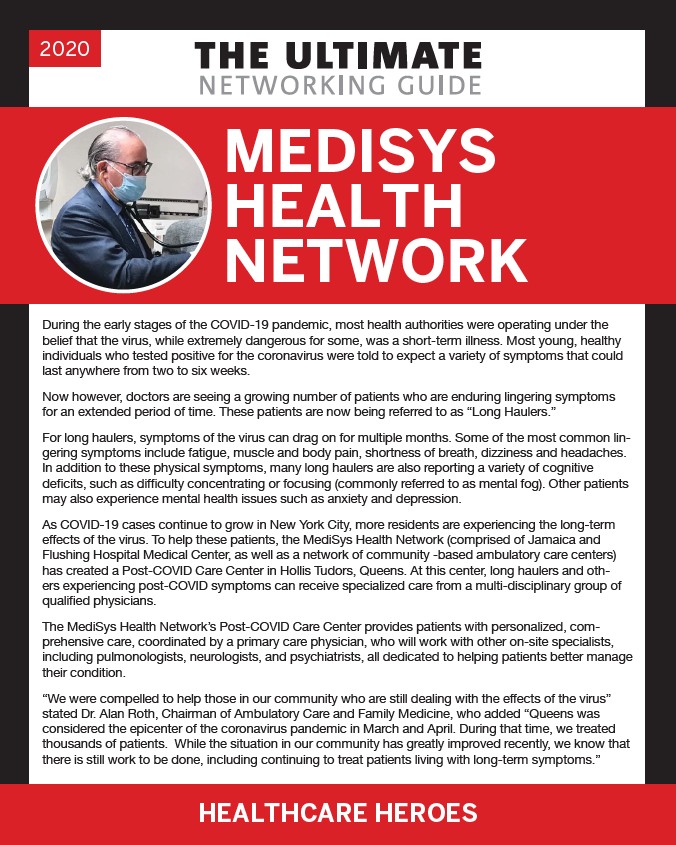
2020
MEDISYS
HEALTH
NETWORK
During the early stages of the COVID-19 pandemic, most health authorities were operating under the
belief that the virus, while extremely dangerous for some, was a short-term illness. Most young, healthy
individuals who tested positive for the coronavirus were told to expect a variety of symptoms that could
last anywhere from two to six weeks.
Now however, doctors are seeing a growing number of patients who are enduring lingering symptoms
for an extended period of time. These patients are now being referred to as “Long Haulers.”
For long haulers, symptoms of the virus can drag on for multiple months. Some of the most common lingering
symptoms include fatigue, muscle and body pain, shortness of breath, dizziness and headaches.
In addition to these physical symptoms, many long haulers are also reporting a variety of cognitive
defi cits, such as diffi culty concentrating or focusing (commonly referred to as mental fog). Other patients
may also experience mental health issues such as anxiety and depression.
As COVID-19 cases continue to grow in New York City, more residents are experiencing the long-term
effects of the virus. To help these patients, the MediSys Health Network (comprised of Jamaica and
Flushing Hospital Medical Center, as well as a network of community -based ambulatory care centers)
has created a Post-COVID Care Center in Hollis Tudors, Queens. At this center, long haulers and others
experiencing post-COVID symptoms can receive specialized care from a multi-disciplinary group of
qualifi ed physicians.
The MediSys Health Network’s Post-COVID Care Center provides patients with personalized, comprehensive
care, coordinated by a primary care physician, who will work with other on-site specialists,
including pulmonologists, neurologists, and psychiatrists, all dedicated to helping patients better manage
their condition.
“We were compelled to help those in our community who are still dealing with the effects of the virus”
stated Dr. Alan Roth, Chairman of Ambulatory Care and Family Medicine, who added “Queens was
considered the epicenter of the coronavirus pandemic in March and April. During that time, we treated
thousands of patients. While the situation in our community has greatly improved recently, we know that
there is still work to be done, including continuing to treat patients living with long-term symptoms.”
HEALTHCARE HEROES